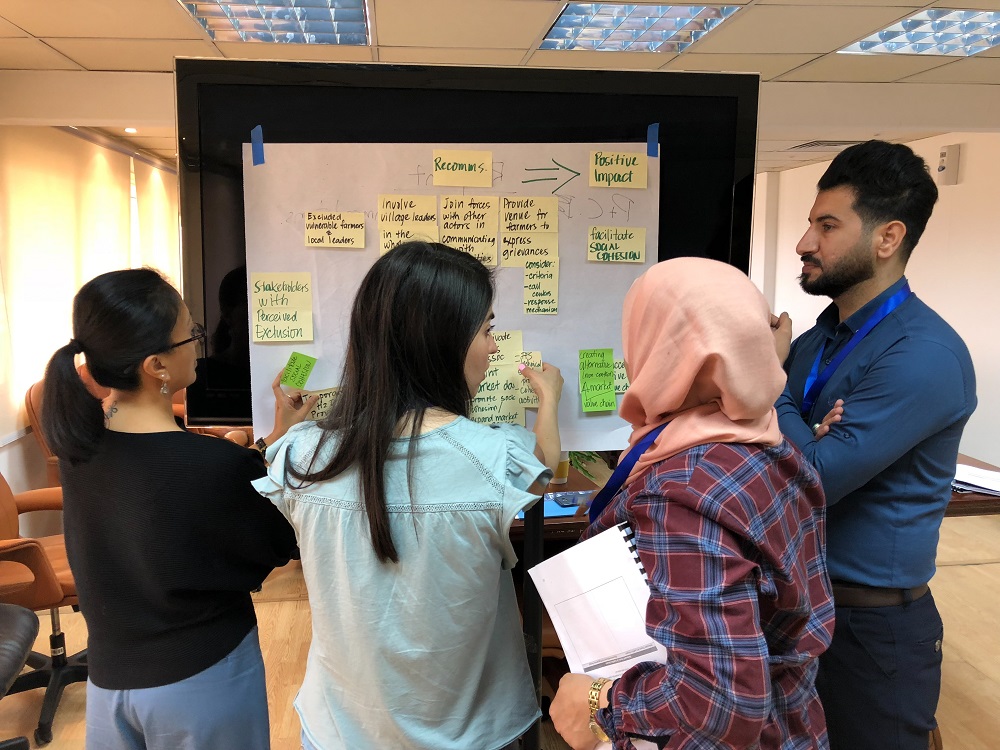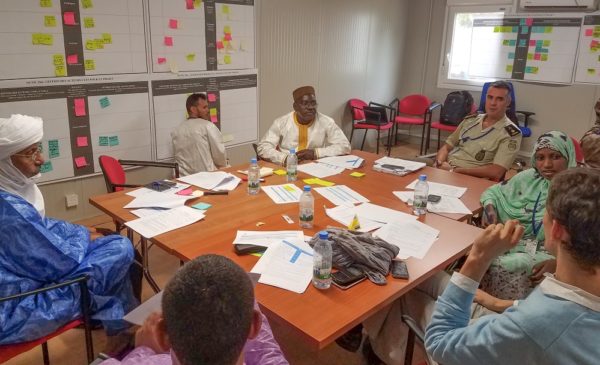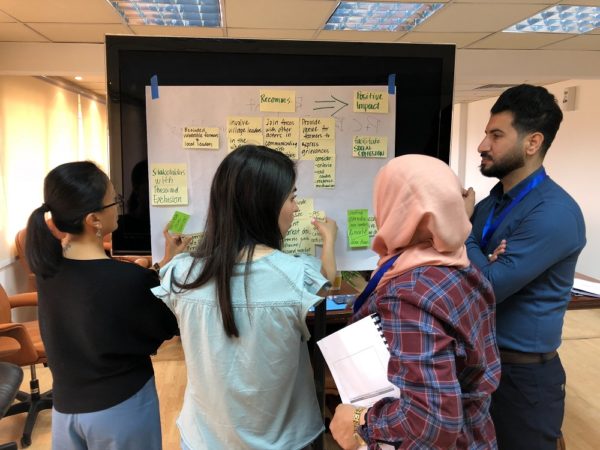An innovative tool for conflict sensitivity
Since it was first popularized in the late 1990s, ‘Do No Harm’ and its evolution, conflict sensitivity, have become increasingly mainstreamed in humanitarian and development interventions. However, its application has also often been relegated to a ‘ticking the box’ exercise.
Together with various clients, IPAT has sought to develop new ways of applying conflict sensitivity that are accessible for non-peacebuilding practitioners, require minimal time and effort, and still yield a meaningful result. With a meaningful result being, as per the goal of conflict sensitivity, the minimization of any negative potential effects and the maximization of any positive potential effects of an intervention on the conflict dynamics in which it operates.
To this end IPAT has developed the ‘case clinic approach’. This tool combines existing conflict sensitivity methods into a self-explanatory guide which walks users through a series of steps to render their project or programme conflict sensitive. Users work on a concrete project or programme under their purview and spend about half a day – or longer, if possible – together with colleagues and partners working through their ‘case’.
The tool is designed in a way so that it requires neither prior knowledge of peace and conflict programming nor becoming an expert in such approaches. It is therefore accessible to any humanitarian or development practitioner so long as they have a degree of knowledge of the context in which they operate. IPAT adapts the tool to each client’s specific needs and goals.
When IPAT has applied this tool together with clients, it has also become evident that it lends itself to facilitating a joint reflection process involving different stakeholders from donor, to implementing agency, to local authorities, to local partner organizations. Using the tool in such a participatory fashion not only provides for a better-informed outcome, but also helps build relationships, trust, and ownership which are key to the effectiveness of any intervention, particularly in a highly polarized context.
The support IPAT provides to organizations seeking to enhance their conflict sensitivity practices also encompasses a review of existing organizational processes and systems to ensure that the use of the ‘case clinic tool’ becomes institutionalized. Hereby IPAT builds upon the practices an organization has already developed and co-designs any changes together with key stakeholders.
“We now systematically have a conflict analysis included in the proposals and we think this is indeed really helpful, helping us focus our efforts and address potential challenges early on. We also fully endorse that the case clinic approach was excellent in helping people understand the importance of the tools and that this is a practice we seek to continue at project development level.”
Staff member of UN Multidimensional Integrated Stabilization Mission in Mali (MINUSMA)
Staff members of the UN Food and Agriculture Organization (FAO) in the field were positively surprised by the outputs of the case clinics we held with them and their partners. One person highlighted to me that they would have never thought so much relevant information could be produced and systematically captured and organized in such a short amount of time. The added value of the case clinic lies in its simplicity and the resulting ease with which it can be integrated into the project cycle. Once people experience that an approach like this is useful for the project outcomes they are working towards, they will be more inclined to actually apply it.
IPAT Senior Associate Philip Thomas



